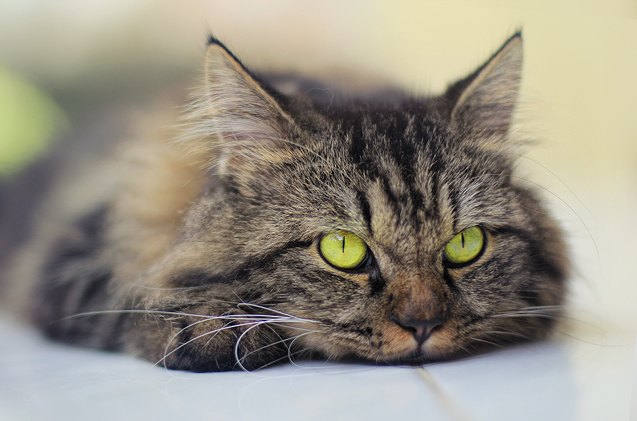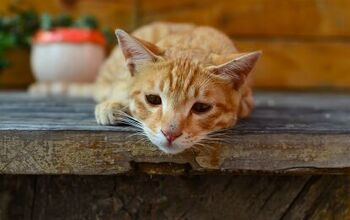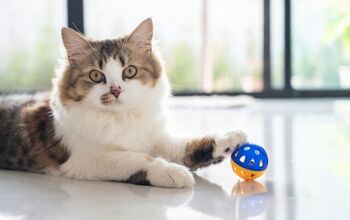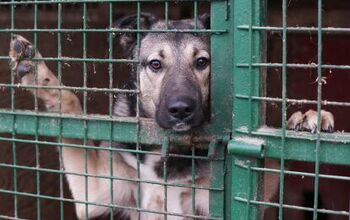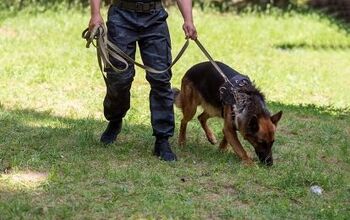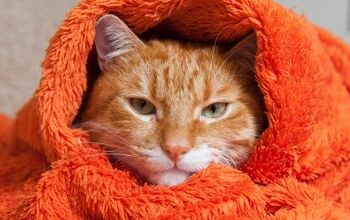A Brief Guide to Feline Calicivirus

There are quite a few different viruses that could affect cats of all ages, and being aware of them could help you become a more informed pet parent. Take the Feline Calicivirus as an example. Knowing the causes and symptoms might help you recognize this health problem in its earliest stages so you could get your kitty the veterinary care necessary to get better.
What Is Feline Calicivirus?
Feline Calicivirus is also known as FCV, and it’s a major cause of oral disease and upper respiratory ailments in felines around the world. If a cat is diagnosed with a respiratory disease, Calicivirus might be to blame, and a dual infection with Feline Herpesvirus is also possible.
Related: What Is Feline Leukemia?
Unfortunately, this viral infection is considered common in the cat population, and it generally causes what can be described as flu-like symptoms. But, because there are many different strains of this virus, and the severity of the strains could vary from one to the other, the severity of symptoms will also vary.
What Are the Symptoms of Feline Calicivirus?
Feline Calicivirus could affect the eyes, throat, oral cavity, and nasal cavity, along with the musculoskeletal system, the intestines, and the lungs. Kittens, geriatric kitties, and cats that have a weak immune system are at greater risk of complications from this virus, but in healthy adults, the mortality rate is considered low. Also, like other feline viruses, kitties that live in overcrowded environments and in shelters tend to be more susceptible to contracting Feline Calicivirus.
Related: Feline Vaccinations: Which Ones Are Really Necessary?
Some of the common symptoms associated with Feline Calicivirus include:
- Nasal congestion
- Sneezing
- Discharge from the eyes or nose (the discharge might be clear or it might contain pus)
- Conjunctivitis
- Ulcers in the mouth, including the gums, hard palate, or tongue, causing drooling
- Ulcers on the nose or lips
- Lethargy
- Enlarged lymph nodes
- Squinting
- Fever
- Anorexia
- Painful, sudden lameness in one or more joints
A strain of Feline Calicivirus that’s known as Virulent Systemic Feline Calicivirus VS-FCV) could cause symptoms that affect the mouth, nose, and eyes before causing other symptoms, such as severe depression, jaundice, edema of the face and/or legs, high fever, and multiple organ disease. This strain has a higher mortality rate, and it’s highly infectious, but the good news is that it’s rare.
How Does Calicivirus Spread?
FCV is highly contagious, and it’s shed in the secretions of the eyes or nose, as well as in a cat’s saliva. Experts also speculate that it might be shed in feces or urine.
Kitties could become infected with this virus by coming into direct contact with an infected feline or by coming into contact with objects in the environment that have been contaminated with the virus. Also, if a person touches an infected kitty or contaminated object, there’s the potential that he or she could then spread the virus to a healthy cat.
Are There Treatments for Feline Calicivirus?
In addition to vaccinating your cat against Feline Calicivirus, there are treatments available to support an infected cat’s health. A vet might prescribe medications for the eyes, as well as anti-inflammatories. Antibiotics may be used to prevent secondary bacterial infections. Severe cases might require hospitalization.
Protect Your Cat Against Calicivirus
Because Feline Calicivirus is highly contagious, you could protect your pet by minimizing exposure to sick kitties, and by washing your hands often and keeping the environment clean. If you notice any symptoms of FCV, take your cat to the vet ASAP in order to receive the appropriate treatment and advice to help your kitty get better.

Lisa Selvaggio is a freelance writer and editor, and our resident cats-pert, with certifications in pet nutrition and pet first aid. She enjoys producing content that helps people understand animals better so they can give their pets a safe and happy home.
More by Lisa Selvaggio



